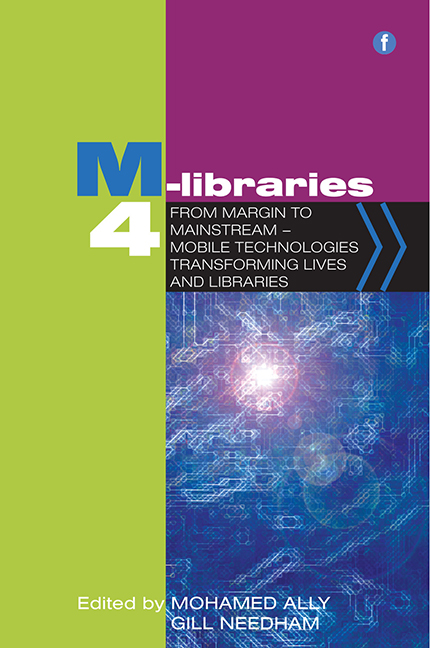5 - BYOD! We don’t think so
Published online by Cambridge University Press: 10 September 2022
Summary
Introduction
This paper is the result of workshop sessions with the Students Union at the University of Chichester and the University of Portsmouth, examining the question ‘In a fee-based environment, what will students be expecting from library and information services, learning spaces and learner support?’ It looks at the question from the perspectives of ‘University perceptions’ and ‘Student perceptions’, and the consequences of these differing perceptions are discussed.
University perceptions
Since the publication of the BL/JISC report Information Behaviour of the Researcher of the Future (JISC, 2008), there has been a sector-wide move away from a ‘Computer Labs’ model of IT provision and towards ubiquitous Wi-Fi, laptops in classrooms and apps for mobile devices.
Perceived student mind-set
The report provided a snapshot of the mind-set of students in higher education at that time. This so-called ‘Google Generation’ (students born after 1993) is seen as ‘format agnostic’ (in that members just want the information that they require, in any format) and as having little interest in the ‘containers’ that provide the context and wrapping for information ‘nuggets’. It was identified that this cohort of students has shifted decisively to digital forms of communication, preferring typing to handwriting, messaging to talking on the phone, and using its mobile devices to access information rather than the university model of desktop personal computers. The Google Generation is believed to be impatient and to have zero tolerance for delay – information and entertainment needs must be fulfilled immediately!
Personalized technology
Perceptions about the mind-set of our students have been mirrored by developments in technological access to information, in that students now have access to the web through mobile devices such as the iPhone, iPad, smartphones and tablet computers. This availability of ‘personalized’ mobile technologies, combined with the attributes outlined above, has led to the rise of BYOD as a possible ‘solution’ to perceived student information needs.
Bring Your Own Device (BYOD) is
the policy of bringing personally owned mobile devices to [school, college, Uni] and using those devices to access [institutional] resources, as well as personal applications and data.
- Type
- Chapter
- Information
- M-Libraries 4From Margin to Mainstream - Mobile Technologies Transforming Lives and Libraries, pp. 47 - 52Publisher: FacetPrint publication year: 2014

